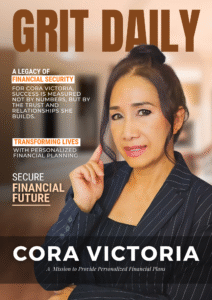Amid a period marked by trade tensions, regional conflicts, and supply chain volatility, a growing number of organizations are rethinking how they manage their most critical external partnerships. New research by World Commerce & Contracting (WorldCC) suggests that traditional procurement strategies may not be enough to weather today’s geopolitical disruptions — and that Supplier Relationship Management (SRM) could be a key line of defense.
WorldCC, a global non-profit with over 75,000 members, has released two new reports — Managing Tariffs and Market Uncertainty and Strategic Relationship Management — that explore how companies can use SRM to build long-term supplier resilience. The reports follow a series of disruptions that have affected everything from microchip availability to rare earth minerals and agricultural exports.
Rising Pressures Across the Global Supply Chain
Trade barriers, export controls, political instability, and economic nationalism are not new. But their convergence and scale today are forcing organizations to adapt at speed. In its recent research, WorldCC identifies several pressure points that are disrupting global trade:
- Trade protectionism and tariffs, which have inflated costs and introduced volatility in key material flows.
- Resource nationalism, where governments limit exports of critical materials to prioritize domestic needs.
- Cybersecurity vulnerabilities, which have exposed supply chains to operational and reputational risk.
- Shifting global alliances, including weakened multilateral trade agreements, increasing unpredictability for import/export-based businesses.
In such a climate, companies with low supplier visibility or heavy regional dependence are facing outsized risk.
“Geopolitical risk is now a core business issue — not just a policy or legal concern,” said Tim Cummins, founder and president of WorldCC. “What we’re seeing is that organizations with strong, transparent supplier relationships are managing these shocks better than those treating procurement as a transactional activity.”
SRM as a Strategic Discipline, Not a Procurement Add-On
WorldCC defines strategic SRM as the active, long-term management of key supplier partnerships, not simply cost reduction or contract enforcement. The reports emphasize that SRM should be a cross-functional discipline supported by scenario planning, contractual mechanisms, and ongoing supplier engagement.
In its Strategic Relationship Management report, WorldCC outlines several capabilities essential to effective SRM, including joint risk mapping, shared contingency planning, and structured performance tracking. The research also stresses the importance of aligning supplier objectives with corporate priorities such as ESG performance, innovation, and regional diversification.
“SRM has traditionally been underdeveloped or underfunded in many companies,” said Sally Guyer, CEO of WorldCC. “But what we’re seeing now is a pivot — especially in organizations that rely on critical suppliers or face complex regulatory environments.”
What the Data Shows About Resilience
Citing industry case studies, WorldCC’s Managing Tariffs and Market Uncertainty report points to a correlation between advanced SRM practices and greater supply chain agility. For example, firms that had pre-negotiated regional redundancy plans or had invested in supplier performance transparency were quicker to adapt during the U.S.-China tariff escalations.
In another case, a technology manufacturer used supplier segmentation and predictive analytics to reassign production capacity after political unrest disrupted logistics in a key hub. According to WorldCC’s analysis, companies with strategic supplier mapping and ongoing dialogue showed higher rates of contract continuity and fewer production halts.
But SRM isn’t just about crisis response. The research also points to long-term benefits, such as improved supplier innovation, reduced lifecycle costs, and more sustainable procurement.
Skills Gap Slowing Progress
Despite these advantages, WorldCC’s analysis found that many organizations lack the internal skills and frameworks to implement strategic SRM effectively. Procurement and legal teams are often siloed, and supplier engagement is typically reactive.
A recent survey of WorldCC members found that fewer than 30% of organizations have dedicated SRM training or certification programs in place. The same study revealed that the majority of procurement professionals spend less than 10% of their time on relationship development.
To address the gap, WorldCC has developed a certification program designed to equip professionals with practical SRM skills, from supplier segmentation and contract design to value co-creation and conflict resolution. The program is grounded in a body of knowledge developed over two decades of global research and member input.
“Our goal is to professionalize SRM in the same way that contract management has evolved over the past decade,” Guyer said. “That includes not only tools and frameworks, but also the negotiation, communication, and strategic thinking skills that are critical in today’s market.”
Collaboration as Risk Strategy
With geopolitical shocks becoming less of an anomaly and more of a constant, many organizations are re-evaluating how much control they truly have over their supply ecosystems. The reports emphasize that resilience will increasingly be determined not just by what companies buy, but by how they manage those relationships.
WorldCC concludes that SRM, properly applied, can act as a counterbalance to external volatility by promoting shared risk ownership, early warning signals, and more flexible supplier engagement models.
“Strong supplier relationships don’t eliminate geopolitical risk,” said Cummins. “But they give organizations options — and in uncertain times, optionality is one of the most valuable assets you can have.”








